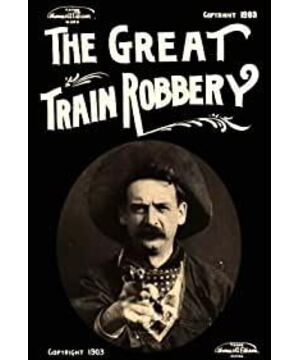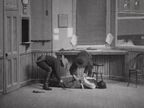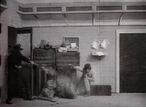Thank you for station B, although I also have this movie myself (under Tsundere).
First pay attention to Zhou Chuanji. He wants to listen to his class.
The movie still hasn't got rid of the limitations of the stage play, and the character performance is still exaggerated, especially the two death scenes.
However, the progressive significance of this movie is simply too great.
The fixed lens still occupies the main position, but the scene of tying the operator is magically presented with a depth-of-field lens. The front and rear two sets of lenses respectively show what people do in different states and positions. What made the director think of such a concise lens organization? Okay, it's not written in the book. I believe that Mike Feggis may be inspired from here to shoot ten minutes old when he went to hahaha, I was joking.
At the scene of the culprit getting on the train. The barrage says that this is the originator of the art of composition, I don't believe it. So I used a ruler. . . (Well, I still haven’t found anything, I will update it when I see the book here in the future)
The fourth act of stealing money on the train. . . The stage play style is too obvious. Criticism cannot be made here, because in the barbaric era, there is no so-called cinematic performance mode, and all performances are basically based on the stage play mode, especially the one-man show or the protagonist performance mode, such as the later hit death performance, the exaggeration of the performance mode Directly copy the stage play mode. Although a little naive, it is excusable.
But the commendable thing about this film is that it directly uses film language to tell the whole story. This is commendable. It's like when you have nothing, you can show your innocence; when you have everything, you are compassionate, kind, lovely, and fearless, only the original innocence may be missing. This is inevitable and accidental. This film left his innocent and immature side in film and television, just like performing a clumsy show in front of a group of adults, but in his eyes, he radiated ignorant and resolute gazes, performing seriously. Own show.
Then the special effects outside the window are cut frame by frame to the original film, this ancient special effect. . . .
Can only say, salute. Without you, without your jumping thinking, without your outstanding imagination, our lives would not have lost much. Ok.
What we lost is regret.
In other words, what we lose is an unimaginable life.
thank you all.
In addition, I really have a hard time understanding the shot of breaking the fourth wall at the end. Is this all traversal?
View more about The Great Train Robbery reviews







